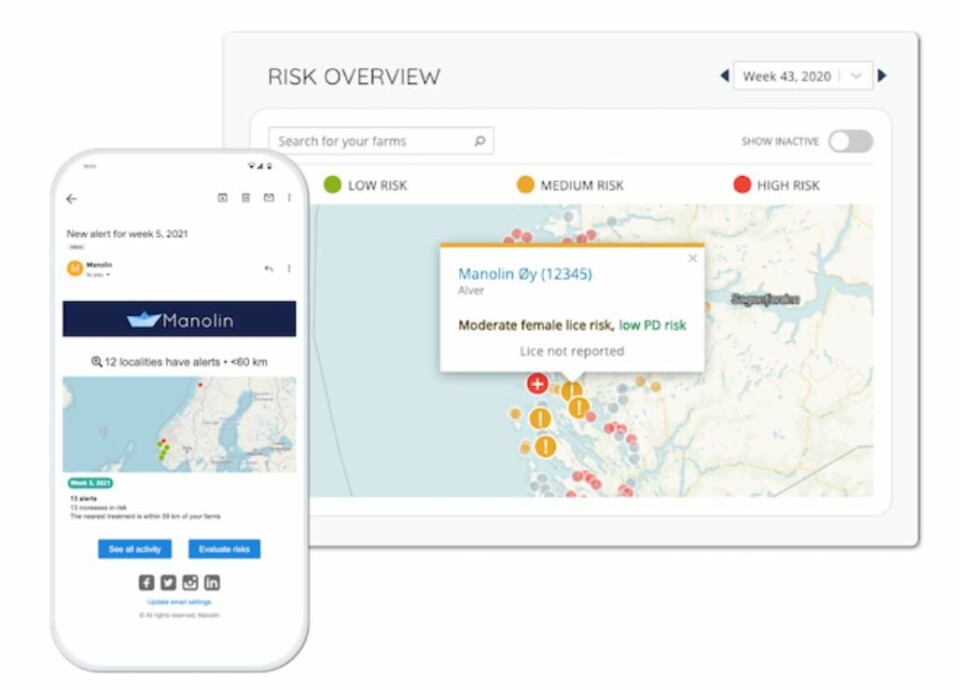
Machine learning models ‘93% accurate’ in predicting PD and ISA
Machine learning models used by salmon farmers in Norway can now predict early onset of pancreas disease (PD) and infectious salmon anaemia (ISA) at greater than 93% accuracy, the company behind the technology announced today.
“This is a true breakthrough moment for our company and the industry as a whole,” said John Costantino, chief technology officer and co-founder of Manolin, a software and data analytics company that builds disease detection models to fuel sustainability in aquaculture.
“The last few months have been a culmination of many years of work - integrating numerous data silos, filling the gaps in industry data, expanding on academia’s disease research, and making it accessible for all farmers with user-friendly software.”

Raising standards
Manolin’s machine learning models are powered by millions of data points including live disease outbreak reports, oceanographic forecasts, marine sensors, boat traffic, marine activity across all 600 active farms, and more than two decades of historical data.
Tore Holand, board member in several Norwegian fish farming companies, said: “It’s important for the industry to continue to raise its standards. Manolin has built a tool that doesn’t replace but works with farmers’ experience and expertise.
“With these types of insights, farmers can keep finding new ways to rethink their processes and improve. To be a part of the future, one needs to keep up with the technological advances.”
Anomaly detection
Manolin has five Norwegian paying customers that have 50 farm sites between them. They include Kvarøy Fiskeoppdrett, Lingalaks, and Hofseth Aqua, all known for an innovative approach. The companies subscribe to Manolin’s Essentials package, which costs from NOK 10,000 per year and analyses the farmers’ private data to offer services such as treatment recommendation, operational benchmarking, anomaly detection and disease forecasting.
Another 252 customers subscribe to Manolin’s free basic package, which uses publicly available data. The subscribers range from farmers to aquaculture investors, fish health biologists, wellboat companies and others interested in exploring the current disease, lice, and treatment status of the region through Manolin’s map view.
The company, which is based in Bergen, Norway and Denver, US, raised NOK 8 million last autumn from Boost VC, Hatch AS, and Innovation Norway, and recently grew its fish health and engineering teams. It is expanding its advanced forecasting tools to include feeding, growth, and mortality models for farmers.
All species and countries
Asked if the technology was available for salmon farmers in countries other than Norway, a Manolin spokesperson said: “Right now, the Essentials tier is for Norwegian salmon farmers, but we see this technology as helping farmers across all species and countries down the line.
“Our machine learning models would easily transfer to other regions, and as we ingest more data from more farms, they would continue to fine-tune for each specific region.
“The next region we go to would just have to be right for the business - the amount of customers and data and the size team we have to manage it.”






















































